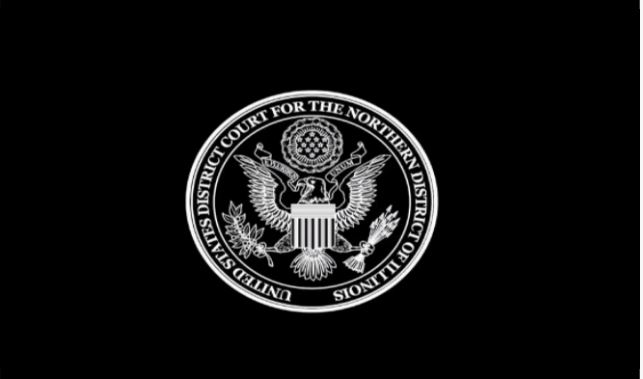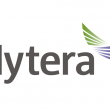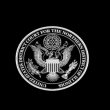Chinese military unit infiltrated Motorola Solutions computers in 2017, U.S. government claims
Members of a signals-intelligence unit of the Chinese military accessed Motorola Solutions’ computer network and downloaded more than 1,000 documents—including competitive intelligence about LMR manufacturer Hytera Communications—in 2017, according to a U.S. government indictment and other legal briefings.
In 2017, Jia Wei was a member of the People’s Liberation Army (PLA)—the military of the People’s Republic of China (PRC)—as a member of the “Unit 61786,” according to the U.S. government indictment. This unit was a signals-intelligence “component” of the Chinese military that “generally worked to obtain communications and information of third parties without authorization through hacking,” the indictment states.
Wei and “co-schemers”—some of whom also were members of Unit 61786—used the login credentials of a Motorola Solutions employee to “fraudulently” gain access to the Motorola computer network about 35 hours after Motorola Solutions filed its civil trade-secret theft lawsuit against China-based LMR rival Hytera Communications in March 2017, the U.S. indictment alleges. Recent legal documents have confirmed that “Company A” in the indictment is Motorola Solutions, and “Company B” is Hytera.
After gaining access to Motorola Solutions’ computer network, “defendant [Wei] and his co-schemers caused approximately 1,094 documents to be exfiltrated or transferred from Company A’s computer network to a computer used or controlled by the defendant and his co-schemers,” the indictment states. “Some of these documents related to civilian and military communication devices of Company A [Motorola Solutions] and Company A’s competitors, and included product development information, testing plans, and internal evaluations of Company A’s products, and commercial information about Company A’s competitors.
“Around the same time, defendant also copied Company A documents discussing Company B [Hytera Communications], including a competitive intelligence document about Company B that was downloaded four times. These documents were accessed and exfiltrated from Company A’s computer network approximately 35 hours after Company A filed its civil lawsuit alleging trade secret theft by Company B pertaining to some of the same communication devices’ technology.”
Although the Wei indictment does not identify “Company A” or “Company B,” a recent legal filing by the U.S. government in another Hytera case acknowledges that the Wei indictment had been unsealed states that “for clarity’s sake, Company A is Motorola [Solutions].” In addition, numerous legal documents filed during the past few weeks have noted Company A filing a trade-secret lawsuit against Company B in March 2017—something Motorola Solutions did that month by alleging that Hytera Communications used stolen trade secrets and copyrighted software to build a popular line of DMR products.
In addition to this initial infiltration, Wei and other co-schemers “attempted to install malware” on the Motorola Solutions computer network in April 2017, according to the indictment. In May 2017, Wei and co-schemers “transferred an unknown number of additional documents” from Motorola Solutions computer network. Later in May 2017, Wei and his co-conspirators again accessed the Motorola Solutions computer network, this time using login and password information from a second Motorola Solutions employee, the indictment states.
Hytera Communications has expressed concern with the U.S. government’s accusations in the Wei case, describing them in the company’s legal briefs as “a series of sensational and highly prejudicial allegations about Company B.” It should be noted that the Wei indictment has been unsealed and is available to the public, but all other legal documents associated with the case remained sealed from public view.
Hytera Communications also expressed concern about the timing of the U.S. government’s decision to acknowledge that the Wei indictment had been unsealed after being filed under seal more than two years earlier.
“The government had originally filed the Wei indictment under seal on June 7, 2022—but the government prejudicially arranged for it to be unsealed on Sept. 16, 2024, just months before the trial in this case is set to begin and shortly before Judge [Martha] Pacold will rule in the recent civil contempt proceedings Motorola lodged against
Hytera,” Hytera stated in a legal brief. “Hytera had not been aware of this indictment until the government brought it to counsel’s attention on October 11, 2024.”
Technically, the Wei indictment is a separate case from the Hytera-Motorola civil trade-secrets case filed in March 2017—decided in Motorola’s favor by a federal district court, with Hytera being required to pay $543.7 million—and the U.S. government’s criminal-conspiracy case against Hytera that was announced in February 2022.
However, Hytera Communications last week submitted a legal brief in the criminal case indicating the potential for the U.S. government to introduce information from the Wei investigation into the criminal trial without properly sharing them in advance with attorneys representing Hytera.
“In the last two weeks, the government confirmed what Defendant Hytera Communications Corporation Ltd. suspected and raised in two prior motions: the government is in possession of evidence that directly relates to the charges against Hytera in this case, which the government may use at trial, and which the government is refusing to provide to Hytera, notwithstanding its obligations under the [federal law],” the Hytera brief of Oct. 25 states.
“Hytera respectfully moves this Court for an order requiring the government to produce documents, communications, and data, along with any other potentially inculpatory or exculpatory information from the investigation that led to the indictment in United States v. Jia Wei.”
In this same legal brief, Hytera details its communications with the U.S. government on the matter.
“Hytera has asked the government to produce the documents referenced in the Wei Indictment. The government has refused,” the Hytera brief states. “And while the government has said that it will not use information from the Wei investigation in its case-in-chief, it has specifically reserved its rights to use that same information at trial and claims that ‘without Hytera disclosing its anticipated defenses, witness list, and exhibit list, the government cannot take a position on whether it will otherwise introduce evidence from that case.’”
Portions of this Hytera legal brief are redacted significantly, particularly in sections in which it appears that Hytera attorneys are noting the potential ramifications of information associated with the Wei case on the criminal trial that is scheduled to begin in February. With this in mind, Hytera attorneys believe the information in the Wei case should be shared by the U.S. government.
“The government has said that it might use this material at trial, even if not in its case-in-chief,” Hytera states in its brief. “However, the trial in this matter cannot turn into a game of ‘gotcha,’ whereby the government gets to wait until the eleventh hour to spring evidence on Hytera after opening statements have been made and Hytera’s theory of the case articulated to the fact-finder.”
Information associated with the Wei case could prove critical to the criminal case, according to the Hytera brief.
“Information show Motorola’s assessment of what is public or secret about the technology used by Hytera and other competitors, and information demonstrating that Motorola obtained competitive intelligence about Hytera (and not just the reverse) would be favorable to Hytera, would support Hytera’s defenses that any supposed theft of trade secrets was committed by a handful of rogue individuals and not by the company, and that the information allegedly stolen in the criminal case did not amount to a trade secret,” the Hytera brief states.
“Such information is therefore discoverable, and [legal precedent] provides an independent basis requiring its production to Hytera.”
Today, U.S. District Court Judge John Tharp directed the U.S. government to file a response to Hytera’s motion asking the U.S. government to share information about the Wei case with attorneys representing Hytera.
Hytera’s brief also cited a relationship between the Wei case and the company’s allegations regarding the treatment of Leon Su, who was detained and interrogated by the U.S. government upon entering the United States in February.
“As a final point, the nature of the Wei investigation sheds further light on the government’s detention and interrogation of Leon Su, one of Hytera’s lawyers helping with the Motorola litigation,” the Hytera brief states. “The circumstances of Su’s detention and interrogation are fully laid out in Hytera’s pending motion—but the connection between the Wei investigation and Su’s interrogation, which focused on any affiliation he had with the Chinese government, is now evident.
“The government is probing for connections between [words redacted] and has no compunction about wading into the Hytera defense camp to do so, even if it has to intrude on Hytera’s attorney-client privilege. This makes the relief sought in Hytera’s Renewed Motion with respect to Su even more justified, and downright urgent.”
While Jia Wei and “co-schemers” allegedly accessed the Motorola Solutions computer network in 2017, the charges were levied by a “Special May 2021 Grand Jury” to the U.S. District Court for the Northern District of Illinois Eastern Division, according to the indictment. The indictment was filed under seal on June 7, 2022, and then unsealed on Sept. 16, 2024, according to legal documents. The unsealed nature of the indictment was acknowledged publicly on Oct. 11.
Other than the Wei indictment, all meaningful documents in the case are sealed at the moment. However, the docket in the case reveals that the Wei case was assigned to the “Fugitive Calendar” on Dec. 2, 2022, which meant that Judge Manish Shah no longer was assigned to the case at that time. The U.S. government filed a motion against Jia Wei on Sept. 13, 2024, and Judge Shah signed an order regarding the case on Sept. 16, 2024.















